
Event Details
- This event has passed.
2024 Symposium – ESC: Residues or What Remains
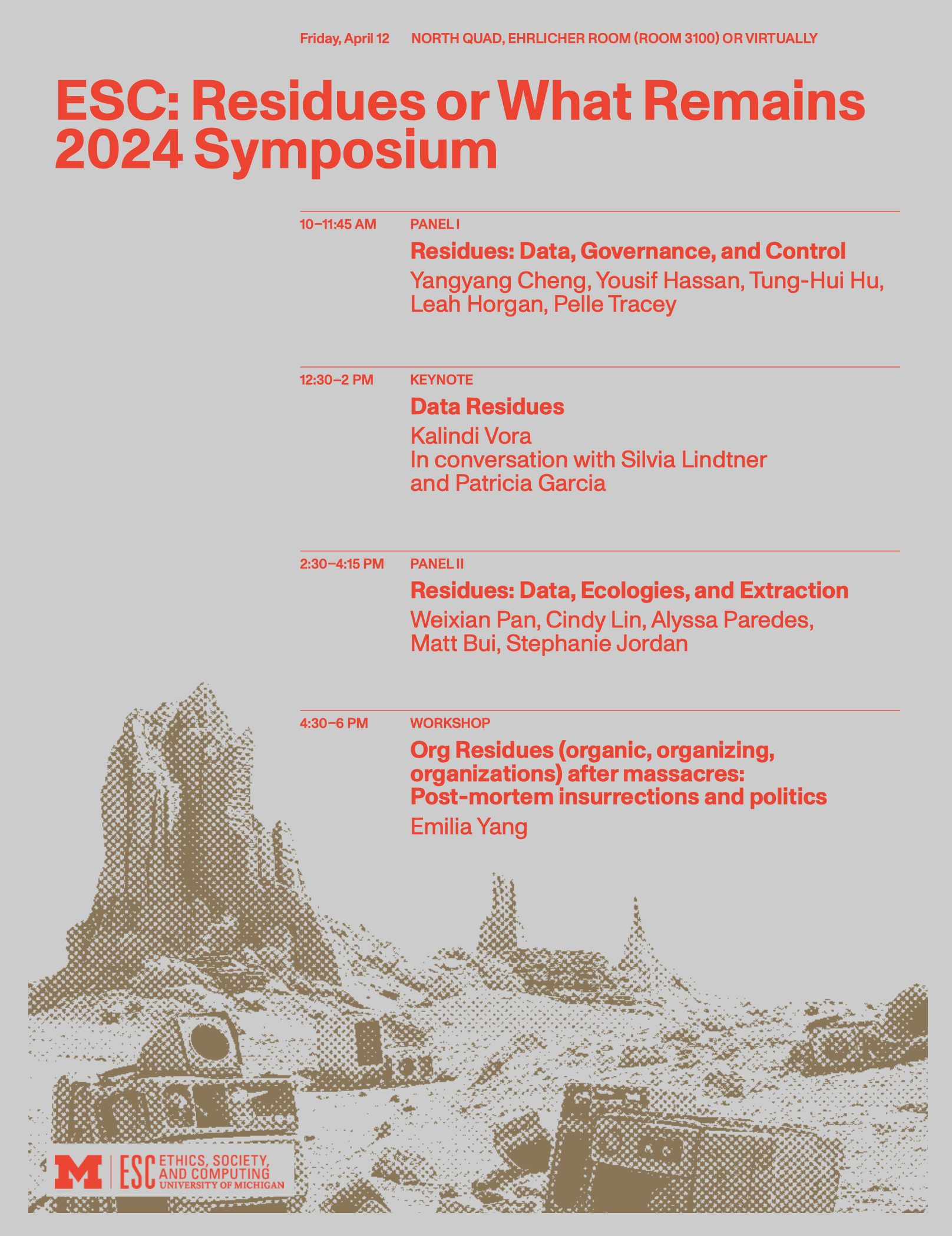
ABSTRACT
They say: AI is here. It is inevitable. It is unprecedented. It is the future. Underneath these claims of inevitably and futurity are residues of technological pasts and presents. Things that stick and smear, pasts that linger. What if we stick with what remains, with these residues—data not used, lands wasted, bodies rendered disposable, labor discarded, life that isn’t attractive to computation, tricky histories of technological and political moments? What if we attend to residual labor, the work of cleaning up, of redirecting vision, of what is soon to be replaced by machines? What lifeforms and futures with technology might become possible then?
For this theme year symposium, five incredible external speakers will join eight local scholars for a day of conversation and thought about residues, in all their sticky complexity.
HOW TO PARTICIPATE
Participants are invited to attend in-person in the Ehrlicher Room (North Quad Room 3100).
RSVP encouraged for in-person attendance and required if you would like to join for lunch. Please RSVP here.
Registration required for virtual webinar attendance. Please register here.
SPEAKERS
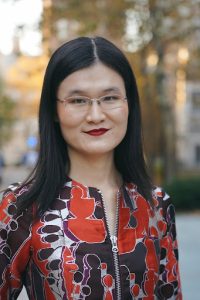
Yangyang Cheng (she/her) is an interdisciplinary scholar, award-winning writer, and public intellectual. Currently, she is a Research Scholar in Law and Fellow at Yale Law School’s Paul Tsai China Center, where her work focuses on the development of science and technology in China and US-China relations. Her essays have appeared in numerous outlets including The New York Times and WIRED, and won several awards from the Society of Publishers in Asia, Asian American Journalists Association, and Bulletin of the Atomic Scientists. Trained as a particle physicist, she worked on the Large Hadron Collider for over a decade, and received her PhD in physics from the University of Chicago.
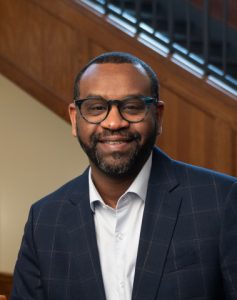
Yousif Hassan is an assistant professor at the Gerald R. Ford School of Public Policy. His work examines the social, economic, and political implications of emerging technologies such as artificial intelligence (AI), blockchain, and big data focusing on the relationship between race, digital technology, and technoscientific capitalism. Hassan’s interest is at the intersection of social and racial justice, and technology policy. His most recent project investigates the development of AI and its innovation ecosystem across multiple African countries focusing on data governance and the sociotechnical knowledge production practices of the state, scientists, and the tech industry.

Tung-Hui Hu (he/his) is a poet and a media theorist. He is the author of five books, most recently Digital Lethargy: Dispatches from an Age of Disconnection (MIT Press, 2022), A Prehistory of the Cloud (MIT Press, 2015) and Greenhouses, Lighthouses (Copper Canyon Press, 2013). He was awarded the 2022-23 Rome Prize in Literature from the American Academy in Rome, and is an associate professor of English at the University of Michigan.

Leah Horgan (they/them) is a Providence-based critical informatics scholar whose work examines the intersection of data technology and urbanism through research, art/media, and through/in support of housing justice and abolitionist grassroots organizing. They received their PhD from the University of California, Irvine and are currently a Computing Innovation Postdoctoral Fellow based at Northeastern University and an instructor at Olin College of Engineering.

Pelle Tracey is a Ph.D. candidate at the University of Michigan School of Information. He uses a mixture of methods to investigate infrastructure, bureaucracy, algorithms, and data work, particularly in frontline government contexts. His current work is an ethnographic examination of how cities in the US make sense of homelessness through data, and how people experiencing homelessness make sense of this state response.

Kalindi Vora is Professor of Ethnicity, Race, and Migration, and Women’s Gender and Sexuality Studies at Yale University. Her first book, Life Support: Biocapital and the New History of Outsourced Labor (Rachel Carson Book Prize 2018), takes up questions of technology, colonialism and raced and gendered labor under globalization. Her second book is Surrogate Humanity: Race Robotics and the Politics of Technological Futures (Duke 2019), co-authored with Neda Atanasoski, a project on the racial and gendered politics of robotics and artificial intelligence. With the Precarity Lab, she is co-author of Technoprecarious (2020), which tracks the role of digital technologies in multiplying precarity. A book of her collected work on transnational gestational surrogacy in India is forthcoming under the title, Reimagining Reproduction: Surrogacy, Labour and Technologies of Human Reproduction.

Silvia Margot Lindtner (she/her) is a writer and ethnographer. Her research focuses on the cultures and politics of technology innovation, including the labor necessary to incubate entrepreneurial life and data-driven futures. She is the author of the award-winning book Prototype Nation: China and the Contested Promise of Innovation (Princeton University Press, 2020), and co-author of the multigraph Technoprecarious (Goldsmiths/MIT Press 2020). She is Associate Professor at the University of Michigan in the School of Information and Director of the Center for Ethics, Society, and Computing (ESC).

Patricia Garcia examines how Latinx and Black communities develop agentic relationships with technology and gain greater over their data. Her current work is a collaboration with public libraries to design computational justice programs that support Latinx and Black girls in seeing themselves as active decision-makers who can leverage technologies to participate in individual and collective action.

Weixian Pan is Assistant Professor in the Department of Film and Media at Queen’s University. Her research focuses on politics of visuality, media infrastructure, and environmental media. Her current book project examines how China’s geopolitical aspirations have been hyper-mediated and entangled with the logic of frontier-making, between the mid-twentieth century and the present day. Her work appeared in journals such as Asiascape: Digital Asia, Culture Machine, Journal of Environmental Media, and Television and New Media. She received her PhD in Film and Moving Image Studies from Concordia University, Montreal. She is also a recipient of the 2024-2025 ACLS/Luce Fellowship in China Studies.
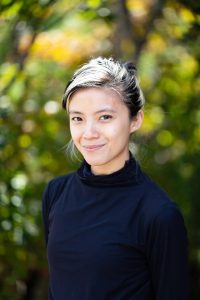
Cindy Lin (She/Her) is an Assistant Professor at the College of Information Sciences and Technology and director of the Critical Technocultures Lab at Pennsylvania State University. Her first book project explores statecraft and computing practices in the environmental and mapping sciences in Indonesia and the professional identities and government institutions that emerged from these efforts. She has published two co-authored books entitled Technoprecarious (MIT Press/Goldsmiths Press, 2020) and Digital Energetics (University of Minnesota Press, 2023). At the University of Michigan, she earned a Ph.D. in Information. She was also a postdoctoral scholar at Cornell University and a visiting fellow at the Digital Life initiative at Cornell Tech.
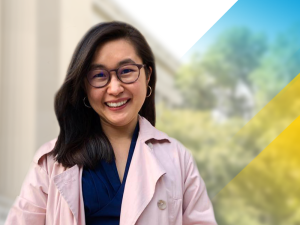
Alyssa Paredes is Assistant Professor of Anthropology at the University of Michigan, Ann Arbor. She is a socio-cultural anthropologist researching plantation capitalism, environmental activism, scientific conventions, and transnational trade between the Philippines and Japan. Her work appears in academic outlets in anthropology, geography, food studies, and Asian Studies, as well as in the digital environmental humanities project, Feral Atlas: The More-than-Human Anthropocene, edited by Anna Tsing, Jennifer Deger, Alder Keleman Saxena and Feifei Zhou. She holds a PhD with distinction from Yale University.
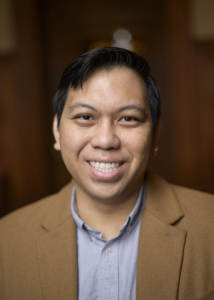
Matthew Bui (he/him) is an assistant professor at the University of Michigan School of Information and an affiliate with the NYU Center for Critical Race and Digital Studies and UCLA Center for Critical Internet Inquiry. Bui’s research foregrounds the local and racial politics of data-driven technologies, policy, and platforms, in order to identify and explore community-driven interventions for outcomes of social and racial justice. His current book project, Appetite for Data, explores how digital foodie platforms increasingly mediate important community debates about race, class, gentrification, and cultural and neighborhood “authenticity.”
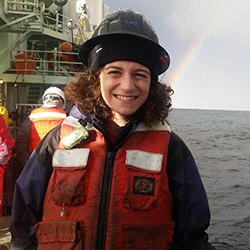
Stephanie Jordan is an assistant professor in the Department of Media and Information and core faculty in the Center for Gender in a Global Context at Michigan State University. She is a previous tech developer now current ethnographer interested in the social and ethical consequences of big data in the climate and ocean sciences with a focus on sustainability across two axes: technical (materials, maintenance, quality control, calibration) and human (labor, equity, resilience), and their co-construction. I work in direct collaboration with scientists to enact inclusive principles in the full pipeline of scientific work from problem identification, design, deployment and modeling through knowledge dissemination through principles of co-design, community engagement and participatory methods. My work operates at the intersection of environmental, design and social justice.
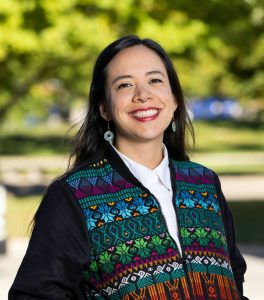
Emilia Yang (She/her/hers) is an artist, organizer and researcher. Her research explores the role of memory, violence, emotions, performance, and participation in the political imagination. Her art practice utilizes expanded forms of digital media (XR, transmedia, web, interactive, films, archives, performance, games and public interventions) for the creation of community-based feminist, anti-racist and transformative justice projects and futures. Yang received a PhD in Interdisciplinary Media Arts + Practice at the School of Cinematic Arts at the University of Southern California. She is currently an Assistant Professor of Art and Design at U-M Penny W. Stamps School of Art and Design, with a focus on Anti-Racism by Design. Personal website www.emiliayang.org


